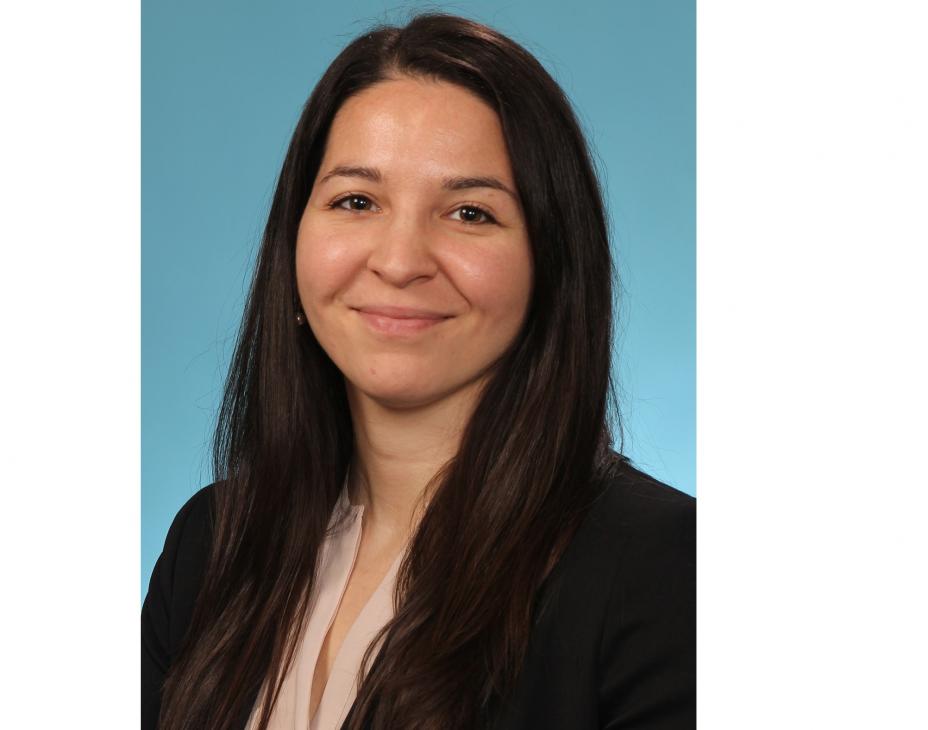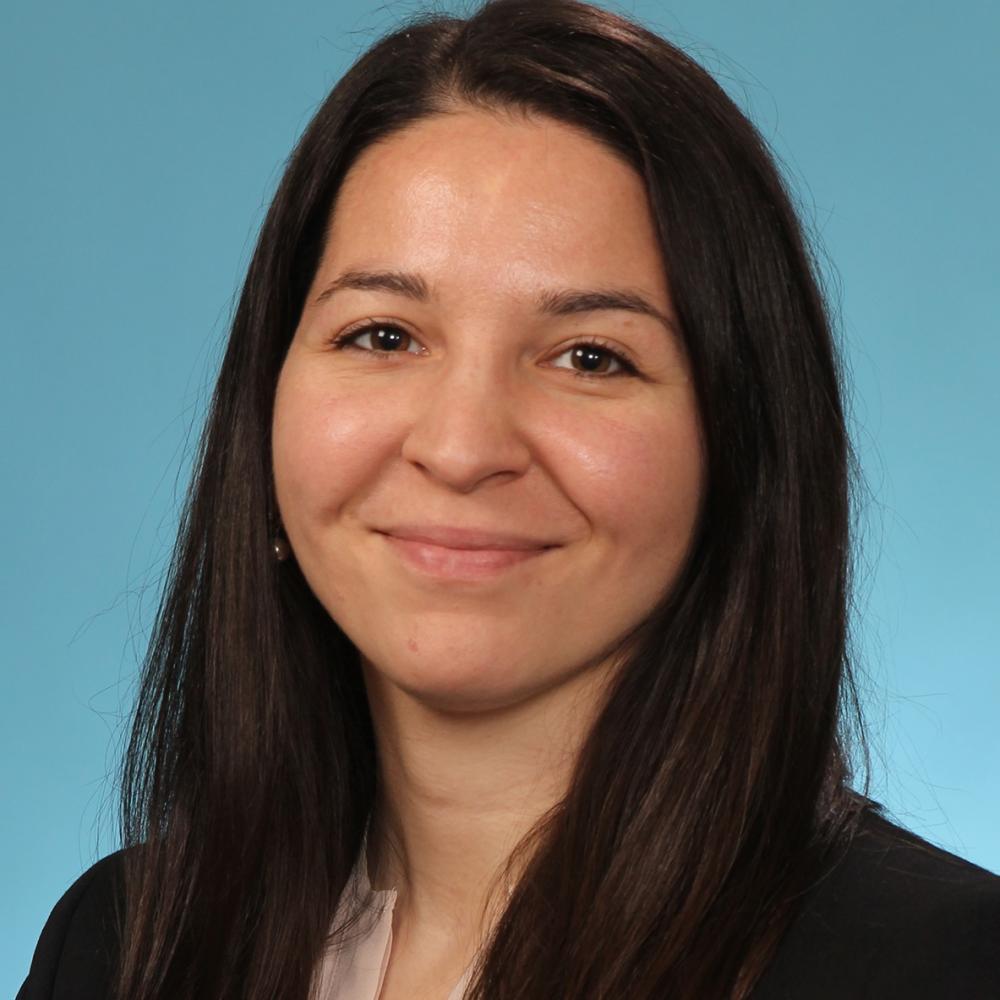These researchers have dedicated their careers to finding new treatments and cures for people with cancer.

Targeting the tumor-protective effects of squamous cell carcinoma antigen (SCCA1) with emerging tools is helping doctors personalize care for patients with cervical cancer. High levels of SCCA1 are a predictor of poor prognosis in this patient population. Elevated SCCA1 also signals higher likelihood of resistance to radiation treatment, recurrence of disease, and death, especially in younger patients. Unmasking how SCCA1 shields tumors – and applying new approaches to 'shut off' this protein – shows promise for patients.
Dr. Markovina, an assistant professor of radiation oncology at the Washington University School of Medicine in St. Louis, is working to reduce treatment resistance and fill vital gaps in cervical cancer care by finding ways to ‘shut off’ the SCCA1 culprit.
“We thought there was likely some protective role for SCCA1 in tumor cells; therefore, we could design drugs to target this protein in patients with high levels in their blood, thus improving treatment response and outcomes for patients using treatments personalized to the biology of their tumor,” says Dr. Markovina. “The data we have generated will allow us to personalize treatment approaches for patients with cervical cancer, which is not yet a part of cervical cancer care.”
Initial Work Shows SCCA1 Shields Tumors
Using support from a Conquer Cancer grant, Dr. Markovina launched an effort to demonstrate the link between SCCA1 and radiation resistance. She and her team performed genetic sequencing – a method of determining the unique genetic makeup of cells and organisms – and developed a tissue microarray (TMA) from patient biopsies stained with small amounts of SCCA1. Researchers use TMAs to analyze multiple samples of tissue simultaneously.
By studying these samples, Dr. Markovina found that higher SCCA1 levels were associated with heightened resistance to radiation treatment.
“We demonstrated that the protease inhibitor-dead mutant of SCCA1 did not protect tumor cells against radiation, and that SCCA-wild type overexpression protected cervical tumor cells against radiation,” says Dr. Markovina. “These findings have served as a validation tool for many studies to date.”
This initial study laid the foundation for Dr. Markovina’s subsequent research in developing and testing the effectiveness of anti-SCCA1 drugs. She used funding from another Conquer Cancer grant to design CRISPR-Cas9 knockout strategies – a tool for investigating the molecular processes that enable disease mutations. The results showed that when SCCA1 was absent, cervical tumor cells became markedly more sensitive to radiation treatment and ultimately died.
Dr. Markovina’s team and their collaborators have termed this groundbreaking mode of cell death ‘lysoptosis.’
“This is significant because it indicates that therapy-resistant tumor cells have evolved mechanisms to evade cell death which would otherwise be induced by radiation therapy and chemotherapy. And most importantly, these protective mechanisms may be targetable with new therapies,” says Dr. Markovina. “These discoveries have led to our current efforts to design drugs and therapeutic approaches to target SCCA in patients with elevated levels.”
Integrating Research into Patient Care
As Dr. Markovina works to bring breakthroughs from lab to clinic, she draws from research to comfort her patients during and after treatment. Many patients in recovery express concern about the status of their health. Those who complete care for cervical cancer typically undergo PET scans around three months post-treatment. Most of the time, the scans show resolution of visible disease. But occasionally, results are indeterminate and can reflect trace amounts of tumor tissue or treatment-related inflammation. In these moments, Dr. Markovina points to her SCCA1 research to help patients feel at ease.
“For one patient in particular, we were able to look at serum levels of SCCA1, which were normal despite her indeterminate PET scan, suggesting that there was no cancer remaining. Indeed, this patient’s next scan was negative for any concern of cancer, and she continues to do well. Because of our knowledge gained from Conquer Cancer research, we were able to give her peace of mind that the treatment had worked,” says Dr. Markovina. “I’ve come to feel that these small steps to improve the lives of our patients are as important as the big steps, because enough small steps can accumulate to a big step over time.”
Next Steps: Applying Novel Approaches
Promising strides made from her Conquer Cancer– funded research are helping Dr. Markovina accelerate efforts in drug development and cancer screening. She and her team generated the preliminary data and rationale needed to start identifying new approaches that target SCCA1’s tumor-shielding behavior and induce the desired 'lysoptosis' outcome. They are also working to understand why SCCA1 causes resistance to radiation treatments and how to make tumor cells more vulnerable to decay.
“The published data are being used to support multiple NIH R01 grants; one study will dissect the determinants and regulators of lysoptosis induced by anti-cancer agents; another will help develop various methods to target the pro-tumor sequelae of SCCA1 expression. Another potential therapeutic approach was developed with collaborators by studying the TMA and is being evaluated for a clinical trial through the NRG Oncology Cooperative Group,” says Dr. Markovina. “And some data are unpublished, serving as hypothesis generating data to determine radiation- and chemotherapy-induced changes in the lysosome that render tumor cells sensitive or resistant to lysoptosis.”
Dr. Markovina also plans to translate this research into more effective and individualized treatment for patients with different cancers. She aims to test whether these promising anti-SCCA1 approaches can successfully target other types of cancer.
“While we hope our findings will be translatable to improve cervical cancer outcomes and minimize the burden of the disease worldwide, we also hope to determine if targeting SCCA1 in other cancers will also be useful,” says Dr. Markovina. “The motivation to continue this work derives from the patients I am fortunate to care for every day.”
